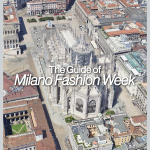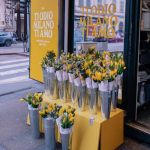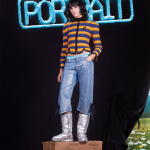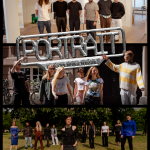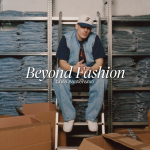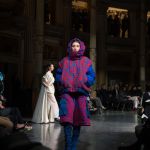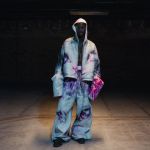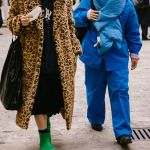
Are the new mentorship initiatives revolutionizing Made in Italy?
How the tutorship of the big brands is launching new talents
January 18th, 2022
Since the Financial Times published an article dedicated to "designers who are leading the Italian Renaissance", the spotlight of the whole world has been on Milan. By interviewing Marco Rambaldi, SUNNEI, Medea and other brands of the "new generation" of designers, the well-known business newspaper rekindled the debate on the concept of mentoring and on the potential of the Italian "system". Vitelli, Cormio, Andrea Adamo or Act N°1, they have conquered celebrities, employees and enthusiasts through a conscious narration of contemporaneity and demonstrating that they have all the credentials to represent Made in Italy at the international top and, above all, to compete with Paris.
Globally, the credit for introducing a collaborative approach based on a tutorship relationship in the fashion world is undoubtedly to be attributed to Virgil Abloh. Mentor of Samuel Ross, Heron Preston and many other creatives, during the lockdown Abloh launched a free online education program and opened a fund available to black students who dream of a future in the fashion industry. Contrary to the structure of the US system, which aims as much as possible to catalyze attention on the creative minds of their country, an individualist perspective has always prevailed and still prevails in the Italian scene. The new mentorship programs are the result of years and years of attempts and suggestions from experts, during which the only point of reference was for a long time Giorgio Armani. In 2013 "the king of Milan", collaborating with CNMI, the italian institution of fashion, opened the doors of the Armani/Teatro to promote the presentations of the works of emerging designers of the time every six months, starting with the first Andrea Pompilio's fashion show, passing through those of Stella Jean and Vivetta and arriving at international designers such as Ujoh and Yoshio Kubo.
In the following years, the picture did not change much, or at least it did until the lockdown began, when Alessandro Dell’Acqua started his personal mentorship program to support the new promises of the fashion system. Together with the commercial partner Tomorrow London, the founder, owner and creative director of N°21, announced his intention to make the entire supply chain available to two young talents every year, supporting them from the first moment of the creative process to the arrival of the collections. in the store. The first designers to have been noticed by Dell'Acqua were Alfredo Cortese of AC9 and Nensi Dojaka, winner of the LVMH Prize 2021. To close the circle, the emerging designers have signed some pieces of N°21 with the aim of reinterpreting the aesthetic codes of the brand, giving life to two capsules which were then included in the main collection. A perfectly successful stylistic exercise that makes us reflect on the process of generational exchange and that could not be stopped. To write the second chapter of what was in effect a revolutionary partnership, Alessandro Dell’Acqua chose the Neapolitan creative Valerio Leone.
The example of N°21 has not remained an isolated case. At the end of last year, Valentino and CNMI announced the launch of a new project in support of emerging designers. With the aim of offering "the opportunity to use our social platform as a stage where they can amplify their work and their messages", the historic maison and the Italian institution promise to broadcast the fashion show of a young promise of Made in Italy live on Instagram. After a selection based on a criterion of "value affinity", the operation that Pierpaolo Piccioli has defined as "much more than a simple declaration" focuses on promotion and offers the chance to gain visibility on a large scale during the fashion week on Maison Valentino's instagram account, which has over 15 million followers. To open the dance will be the work of Marco Rambaldi who, from season to season, continues to surprise thanks to a "vision of kaleidoscopic beauty". The Gucci Vault concept store is also virtually part of this context, which, in addition to being a "cabinet of curiosities" and seat of expressive influences, hosts the most representative garments of some young international talents. While a special mention also goes to Dolce & Gabbana, which invested in the collection of the Korean promise Miss Sohee in the Porta Venezia location.
Then there is the economic question to consider: as M.C. Nanda tells in Business of Fashion, young creatives are less and less inclined towards traditional investment models, which would make them dependent on the needs of large financial groups, and are exploring new business models. And if on the one hand everyone knew that this moment would come since, between the late 90s and the early 2000s, the major investors invaded the fashion industry causing the decline of designers as we knew them in the past, on the other it is yet another sign of an upcoming change. The big Italians will be able to choose to ignore it, accepting a scenario of isolation and decline, or they will be able to embrace change, educating young talents, pushing the new names of Made in Italy such as Federico Cina, Des Phemmes, Alessandro Vigilante and Gentile Catone. Like a small single closed-circuit system that lights up the whole space.


























